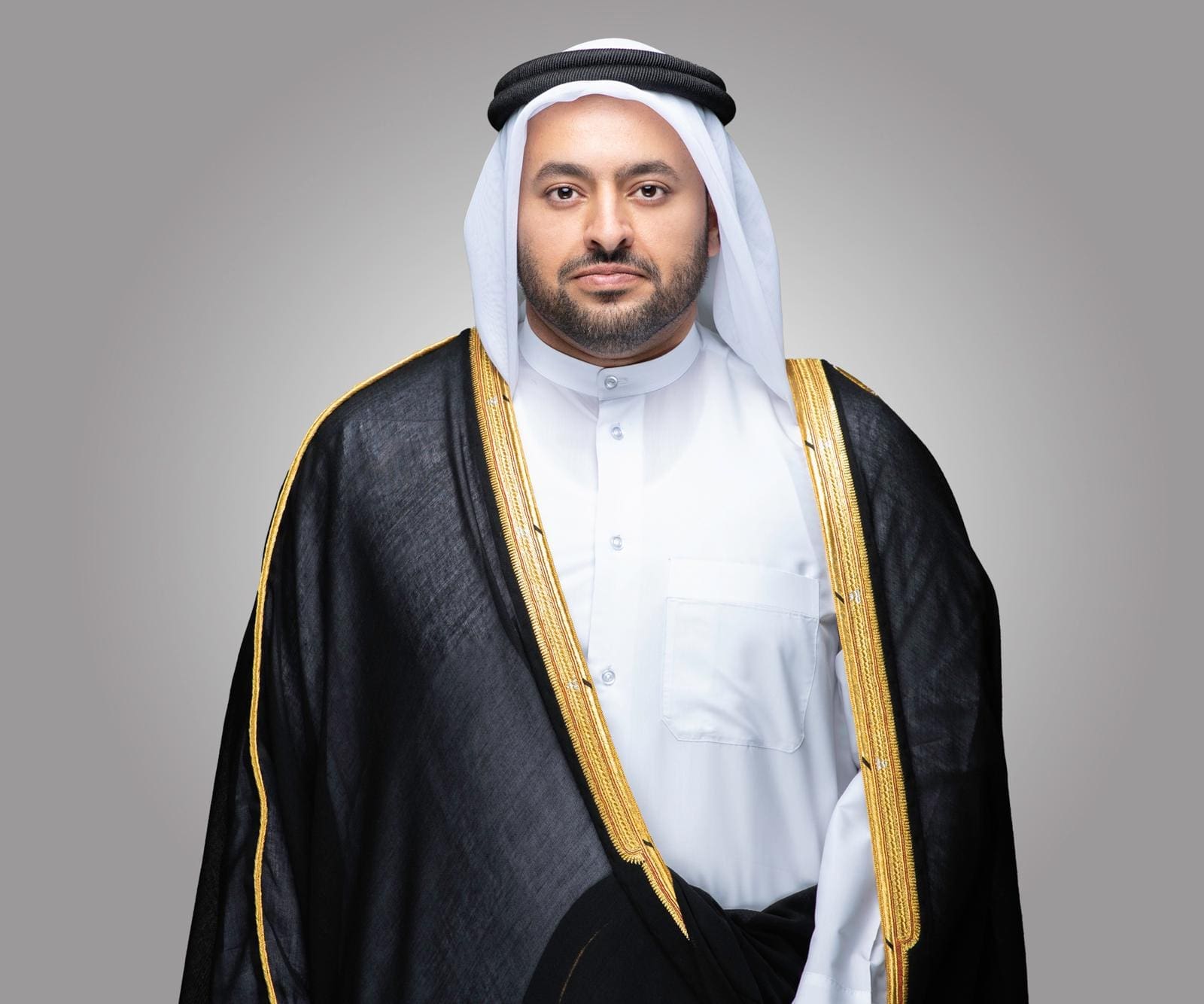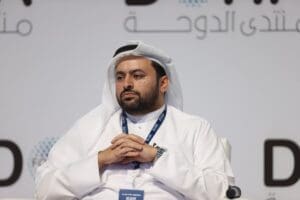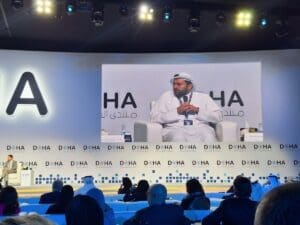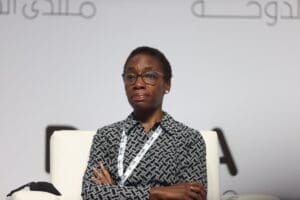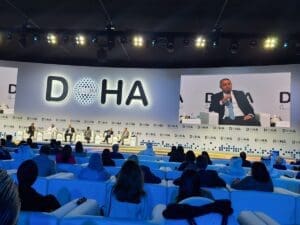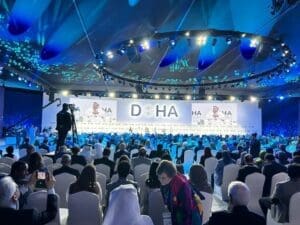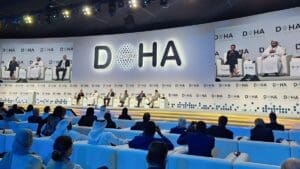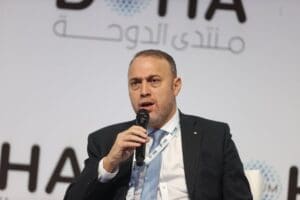Palestine Has Become a Global Crisis -
Does It Have a Global Solution?
December 11, 2023
Summary
The Middle East Council on Global Affairs (ME Council) organized a plenary discussion at the Doha Forum titled “Palestine Has Become a Global Crisis – Does It Have a Global Solution?” The plenary was moderated by Becky Anderson, managing editor and anchor of Connect the World at CNN, and included Mohammed bin Abdulaziz Al-Khulaifi, minister of state at Qatar’s Ministry of Foreign Affairs, Husam Zomlot, Palestinian ambassador to the UK, Daniel Levy, president of the US/Middle East Project, Comfort Ero, president and CEO of International Crisis Group, and Huiyao Wang, founder and president of the Center for China and Globalization (CCG).
Becky Anderson kickstarted the session probing panelists to share insights on what they believed would happen after the war ends. Husam Zomlot underscored the magnitude of the destruction caused by the war with more than 60% of Gaza razed and heritage sites destroyed including historical structures, mosques, and churches. He further explained that thus far, almost 2 million people have been displaced, and northern Gaza, which hosts most of Gaza’s population, has become unlivable. Zomlot emphasized the importance of focusing on the period preceding this current moment rather than the day after, stressing the need for a permanent comprehensive ceasefire. He stressed that discussions surrounding the larger system that facilitates settlements and apartheid, undermining prospects for a two-state solution, would need to take place.
Anderson then directed the discussion to Mohammed Al-Khulaifi to clarify Qatar’s position on Gaza, specifically in relation to the financial support provided to Gaza prior to the 7th of October. Al-Khulaifi stated that Palestine has always been important to Qatar’s foreign policy, explaining that the provision of funds has consistently been channeled towards re-construction efforts and education support. Qatar has also been crucial in driving peace efforts. Echoing Zomlot, Al- Khulaifi emphasized that a sustainable political solution to the war world only come once a ceasefire was put in place.
Turning to China, Anderson posed a question to Huiyao Wang about Bejing’s view of the war. Wang explained that China is an important trading partner for many, and actively promotes peace. To that end, a ceasefire is logical for China. Wang stressed Beijing’s commitment to end the war and alleviate suffering, calling for increased dialogue between global actors.
Daniel Levy then explored Netanyahu’s calculus in the war, considering the stated goal of the war as ending Hamas and his regime’s policy of displacement across Gaza and the West Bank. As the situation in Gaza escalates, the backlash Netanyahu is going to face once the war ends will invariably intensify. Levy touched on three vital lessons for the present moment and the day after. First, he explained that currently, mobilization, and not normalization, is essential. This is particularly true for the current Israeli regime where the government is largely pro-ethnic cleansing and meets the legal definition of apartheid. Second, the war will only get worse if accountability is not introduced. Levy emphasized the U.S.’s shortcomings on that front, as international laws continue to be violated. Finally, the need to emphasize that to many of those in the Global South, Palestine is an avatar of the unacceptable postcolonial order and a representation of the West’s moral failures.
Shifting the conversation back to Qatar, Anderson mentioned Iran’s requests to halt the use of the U.S. base in Qatar to transfer weapons to Israel. Al-Khulaifi highlighted Qatar’s Ministry of Foreign Affairs’ efforts to engage the international community, on containing the war, through the establishment of a task force. Qatar is calling for coordination amongst regional states and the international community. With regards to the U.S. and Iran, Al-Khulaifi emphasized that all important stakeholders must be transparent to prevent further escalation.
Comfort Ero touched on international leadership amidst the ongoing war. Ero explained that the dysfunction in the Security Council and veto system is not surprising, pointing to the broader crisis of the lack of leadership in the international system. She stressed that the dysfunction preceded Gaza and was seen in Ukraine for instance. When discussing prospects for the day after, Ero mentioned that it while it is difficult to conceive, there will be a day of reckoning for the UN and the U.S., as well as others who have enabled this war.
Zomlot discussed the impact of the war on the Palestinian political landscape. When asked about the war’s impact on the future of the PA, PLO, and Hamas, Zomlot called for empowering Palestinian institutions. He further explained that while Palestine has a seat at the UN, it is not a member state. In order for the Palestinian state to exercise active leadership, the international community must first recognize Palestinian statehood. At this moment of heightened support for the Palestinian cause, Zomlot underlined the importance of, global and regional, political alignment to end the colonization, apartheid, and occupation of Palestine.
Levy further explained that any seriousness about a two state solution rests on the recognition of Palestine. However, he cautioned that it would be important to identify what a two-state solution would entail.
Closing the panel, Ero and Al-Khulaifi affirmed the immediacy of a ceasefire. Ero also highlighted the need for hostage exchanges, reconstruction efforts, support for Gaza, and safeguarding the rights of Palestinians. Panelists concurred that a ceasefire must first be adopted before proceeding with secondary discussions.
Moderator
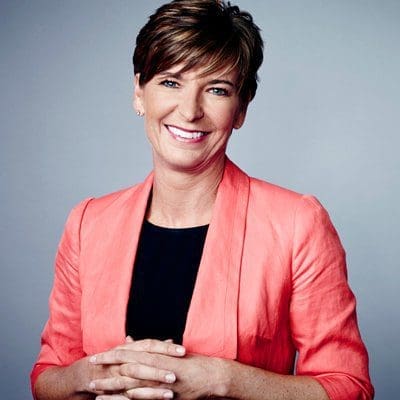
Becky Anderson
Managing Editor and Anchor of Connect the World, CNN
Speakers
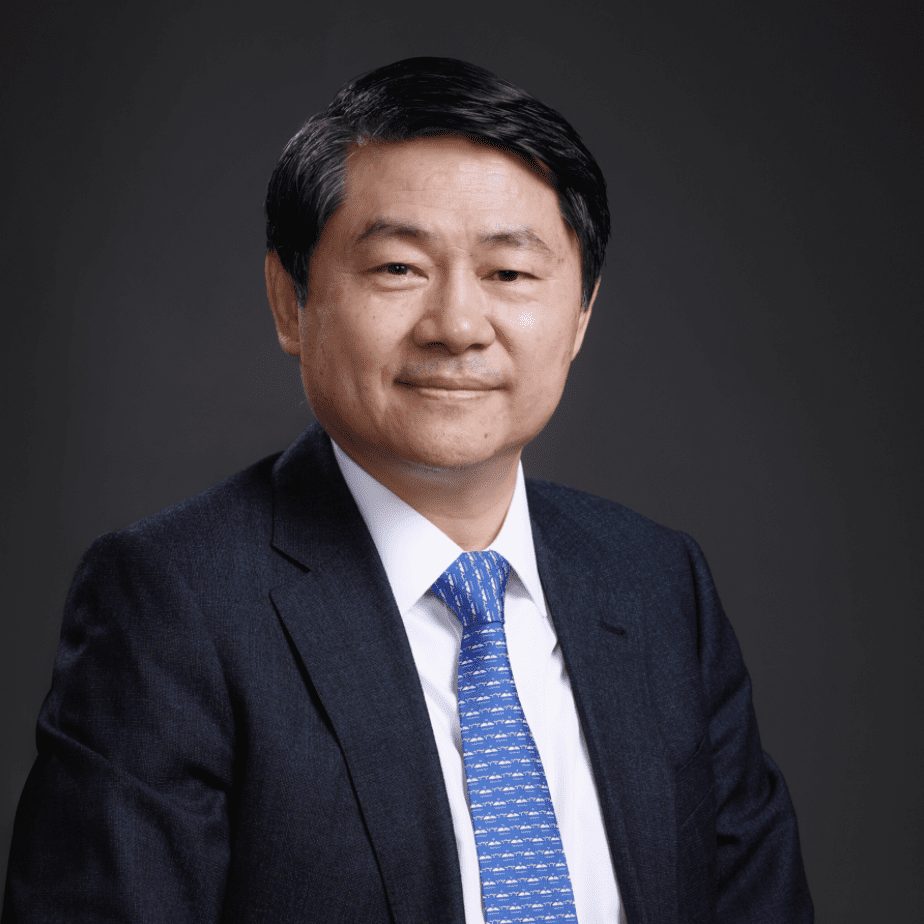
Dr. Huiyao Wang
Founder and President of Center for China and Globalization (CCG), former Counselor to the State Council of People's Republic of China
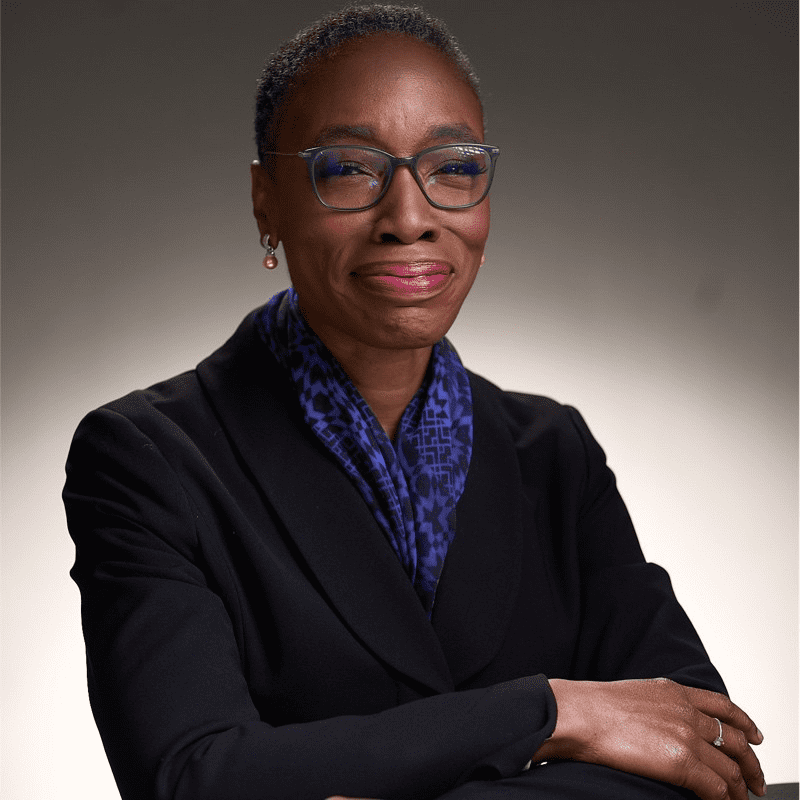
Dr. Comfort Ero
President & CEO, International Crisis Group
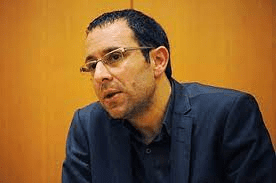
Daniel Levy
President, US / Middle East Project (USMEP)
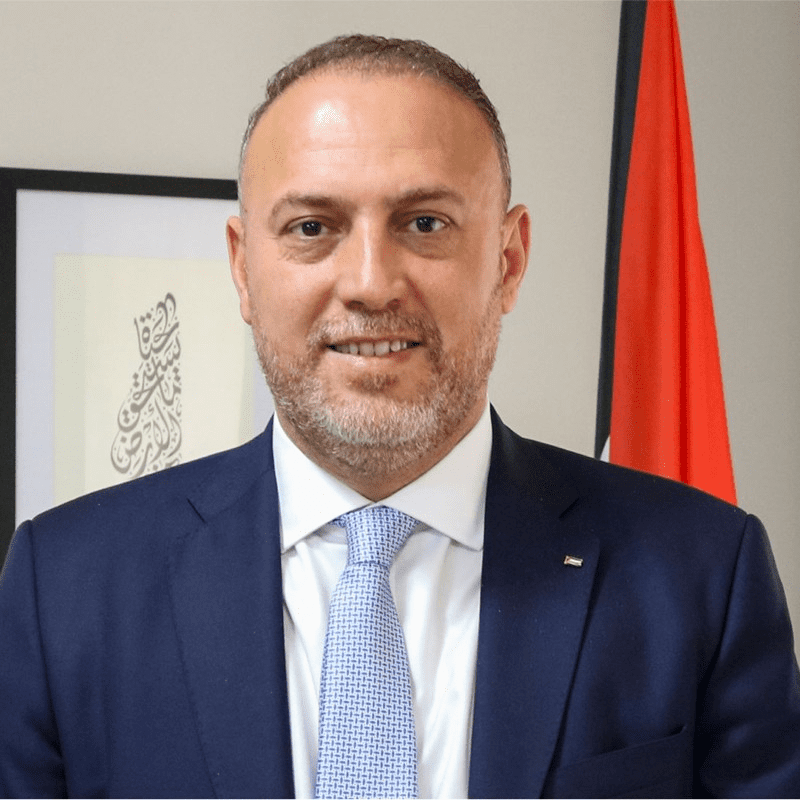
Husam Zomlot
Ambassador, Palestinian Mission to the UK
